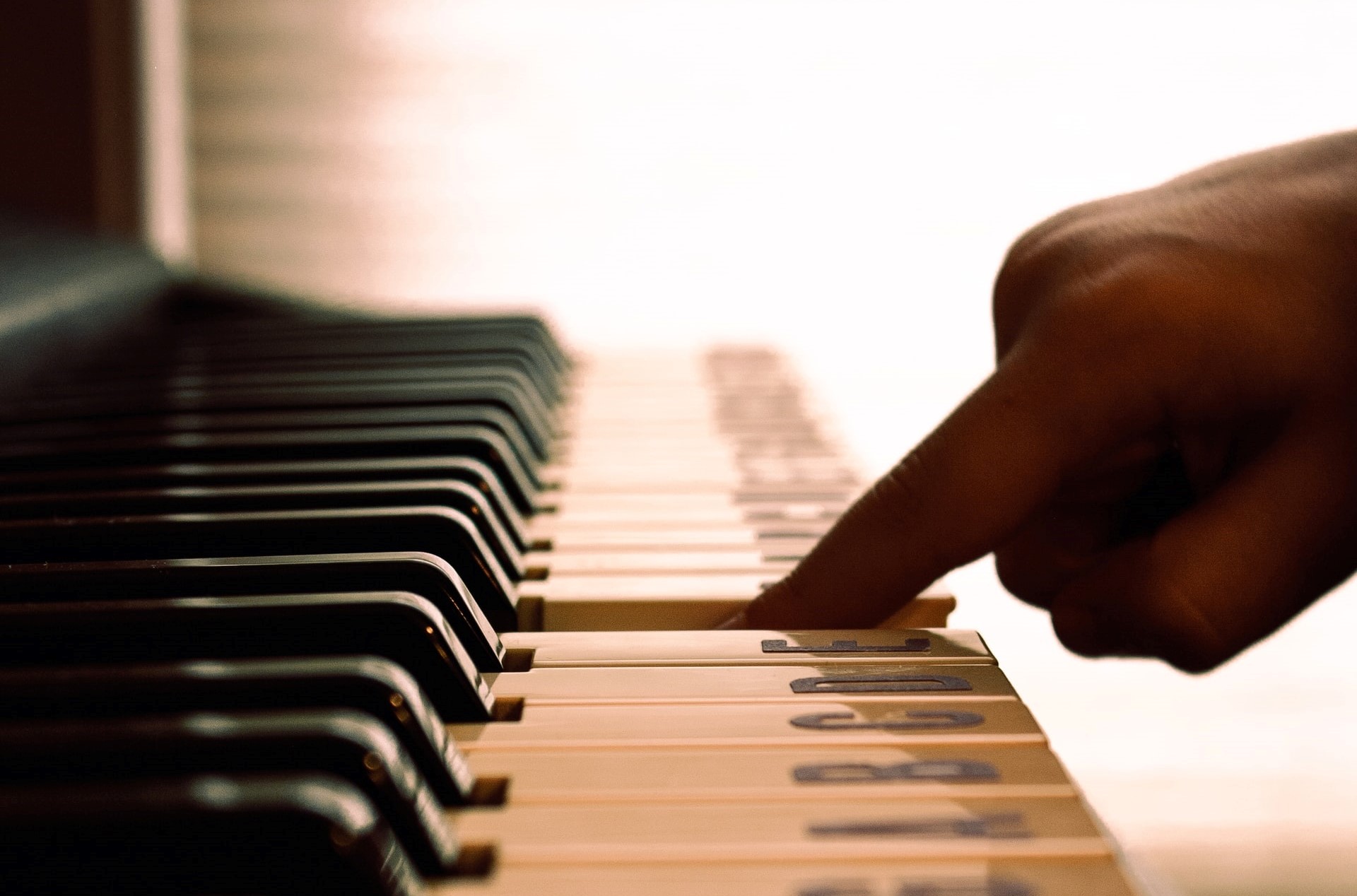Sometimes, some people, regardless of age or condition, feel the curiosity or even the need to understand how music works. They have heard expressions like musical theory, or music theory, or harmony and wonder what those mysterious words hide.
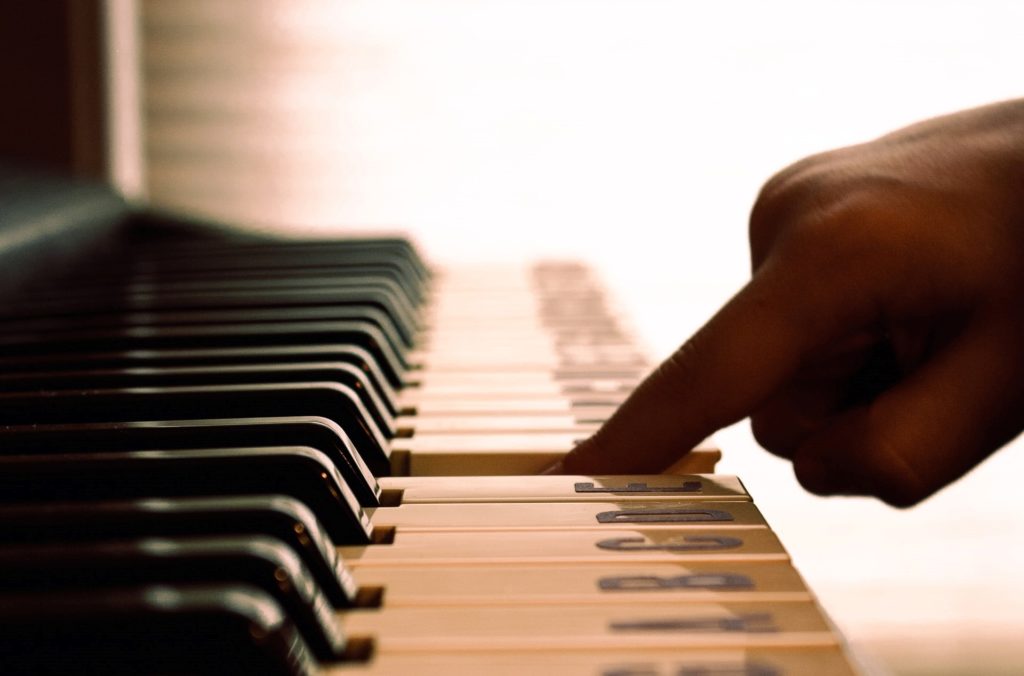 Piano in music school Music schools of all kinds, conservatories, private teachers, videos on the internet and so many places or sources where you can find that valuable information. When we really want to learn something we find a way, even if it often costs time and money, sweat and tears.
Piano in music school Music schools of all kinds, conservatories, private teachers, videos on the internet and so many places or sources where you can find that valuable information. When we really want to learn something we find a way, even if it often costs time and money, sweat and tears.
1. Why learn music?
The first thing we should ask ourselves is whether it is really necessary to learn music. All that educational offer, the thousands and thousands and thousands of pages dedicated to illustrating theories, methods and routines to learn and try to understand the human musical phenomenon, is it worth it? Well, to begin with, as usual, we should ask ourselves about the motives, the purpose, the personal objective of each person with respect to music. What relationship do we want to have with it? Do we want to be enlightened music lovers? Would we like to play a musical instrument well? Are we interested or do we feel the need to compose songs? Music is everywhere, it affects everyone in one way or another and means very different things in everyone's life. For many people it is a rather passive activity. For most, it manages to produce some reaction, such as singing the lyrics, humming the melody or dancing, for example. For a smaller group, music is already something in which they want to actively participate, like learning to play an instrument or consciously perfecting a musical skill. And, furthermore, another group of people feel the creative impulse within themselves, compose music, write lyrics or put all this together into complete songs. Each person has a unique bond with music, something intimate, to some extent inexplicable, and each of those personal relationships needs different things.
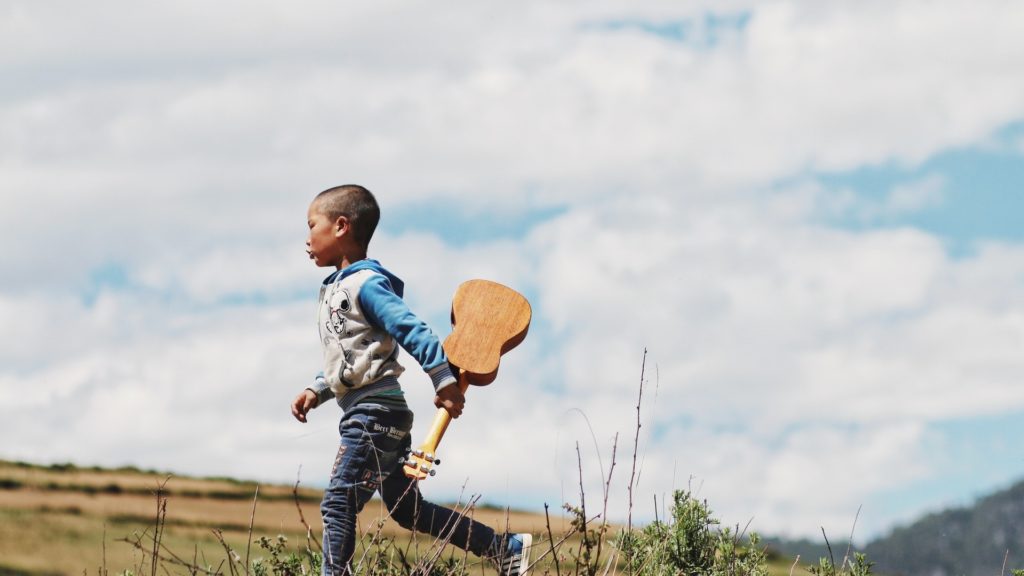 Boy with ukulele A passive listener doesn't need much: background music, a background sound environment, nothing extraordinary. A person who reacts to music in some way is probably going to select what type and in what way and at what time they are going to listen to it and not just anything is going to serve their purposes, to sing or dance or hum it. An amateur musician will add to this musical selection according to his tastes, time and space dedicated to practicing, listening carefully and perhaps some teaching material or a music school or teacher to guide him. Finally, an aspiring professional musician, composer or composer will most likely, in addition to the above, study a repertoire, interact with other musicians and try to find their place in the world of work related to music. Podcast episode dedicated to musical learning
Boy with ukulele A passive listener doesn't need much: background music, a background sound environment, nothing extraordinary. A person who reacts to music in some way is probably going to select what type and in what way and at what time they are going to listen to it and not just anything is going to serve their purposes, to sing or dance or hum it. An amateur musician will add to this musical selection according to his tastes, time and space dedicated to practicing, listening carefully and perhaps some teaching material or a music school or teacher to guide him. Finally, an aspiring professional musician, composer or composer will most likely, in addition to the above, study a repertoire, interact with other musicians and try to find their place in the world of work related to music. Podcast episode dedicated to musical learning
2. Where to learn music?
If we focus on learning, if we decide that we need that knowledge, there are three main paths to follow. Self-taughtMusic schools and conservatoriesPrivate education The option autodidact It consists of acquiring musical skills and knowledge as we need them. Encountering something that we do not understand or do not know how to do and looking for an explanation or solutions on our own. It can be musical educational materials, family ties or friendships and, above all, practice and dedication. The result of self-taught learning can be as good or better than a regulated or structured one of some kind, but it is often a long path that leaves gaps in the map of musical possibilities, along with some added insecurity in one's own knowledge and acquired capabilities. The music schoolswhatever their level, they are theoretically the ideal place to learn theory, polish and improve technique, interact with people interested in music and, probably, play with them. This scenario is usually fulfilled, at least in parts, in most of them, and the price that must be paid, in addition to the economic one, is usually to follow a uniform and pre-established path for all the students and, many Sometimes, accept the teacher they put in front of you with their virtues and defects, whether you like it or not, whether you fit in with each other or not.
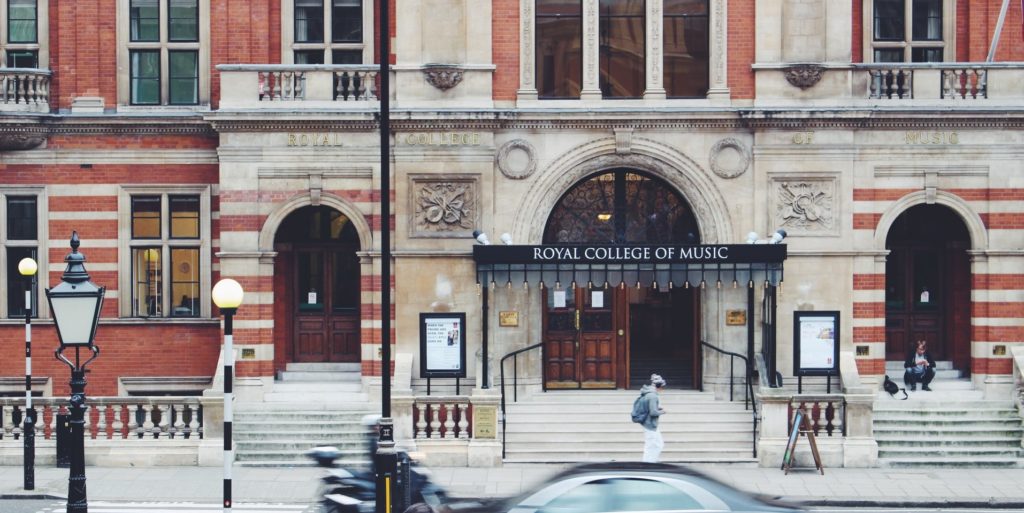 Music school The consequence of this scenario is usually musicians who learn in a standard way a common theory and equivalent practice with unequal patience. Many vocations end up mistreated or directly canceled by these rigid teaching systems. Some ideas and a lot of motivation and enthusiasm are buried, unfortunately, in these institutions. The private teaching or individualized is another option to learn and, probably, the most interesting and fruitful on a personal level. If you find the ideal teacher or teachers for you and you can afford them, in principle you can find a good balance between what you want or need to learn and what the teacher on duty thinks you need or should know. The cons of this way of learning is that you have to avoid dependence on one or a few references and you must change teachers with some frequency. In addition, the part of personal and musical relationships with apprentices like you and other musicians will remain pending, something basic to mature and find your sound, your differential values among the pack of artists that are always there on both sides. You must assume this exposure and exploration personally.
Music school The consequence of this scenario is usually musicians who learn in a standard way a common theory and equivalent practice with unequal patience. Many vocations end up mistreated or directly canceled by these rigid teaching systems. Some ideas and a lot of motivation and enthusiasm are buried, unfortunately, in these institutions. The private teaching or individualized is another option to learn and, probably, the most interesting and fruitful on a personal level. If you find the ideal teacher or teachers for you and you can afford them, in principle you can find a good balance between what you want or need to learn and what the teacher on duty thinks you need or should know. The cons of this way of learning is that you have to avoid dependence on one or a few references and you must change teachers with some frequency. In addition, the part of personal and musical relationships with apprentices like you and other musicians will remain pending, something basic to mature and find your sound, your differential values among the pack of artists that are always there on both sides. You must assume this exposure and exploration personally.
3. How to learn music?
And here comes the mother of the lamb. If we already know why and where, we only have one detail left to get us started. Yes, a detail, but almost certainly the most important. How are we going to do it? What do I mean by this? Good. Even with the decision to learn made and the method or place or person chosen, we still do not know exactly how the matter is going to go, what we will do first and what after, what will be priority and secondary, what will propel the learning and what will complete the scenario.
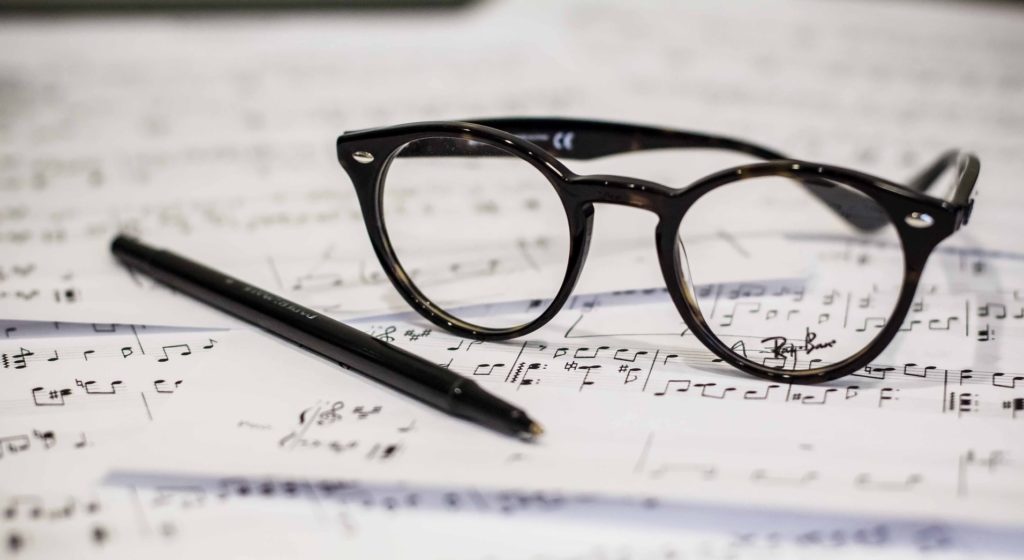 Studying music The famous methodologies or methods of musical teaching are finally where these questions are usually clarified. The most traditional academic form usually places emphasis on musical language, instrumental technique and the execution of this or that chosen repertoire. In schools, over the last few centuries, students have been accustomed to having a passive or reactive role in relation to the content that teachers were presenting. The well-known educational programs established, and still do in most educational centers, an unalterable order of competencies that had to be assimilated, canonical material, so to speak, and exams after which a degree is obtained, the test of that we are musicians or instrumentalists to this or that degree or level. Even private teachers tend to use one or another musical educational tradition, almost always the one they received or suffered, and apply it with few changes to their own students.
Studying music The famous methodologies or methods of musical teaching are finally where these questions are usually clarified. The most traditional academic form usually places emphasis on musical language, instrumental technique and the execution of this or that chosen repertoire. In schools, over the last few centuries, students have been accustomed to having a passive or reactive role in relation to the content that teachers were presenting. The well-known educational programs established, and still do in most educational centers, an unalterable order of competencies that had to be assimilated, canonical material, so to speak, and exams after which a degree is obtained, the test of that we are musicians or instrumentalists to this or that degree or level. Even private teachers tend to use one or another musical educational tradition, almost always the one they received or suffered, and apply it with few changes to their own students.
Conclusions
Therefore, you have to be careful and not get carried away by this or that educational program or recipe. What is the best solution then? Luckily, there is no one solution or answer for everyone. And it is logical and good that this is the case since, as we have said and really anyone knows, each case is unique and needs an ideally unique solution. Does this mean it is impossible? The answer is no. Let's use common sense. Now that we know the good and the bad of each path, let's try them without obligation, see if they serve us personally or to what extent they are helpful to us. Let's change without fear if we are not completely comfortable or we are missing something, let's complete our learning with different sources, let's put together our perfect educational combination, let's make it to our measure.
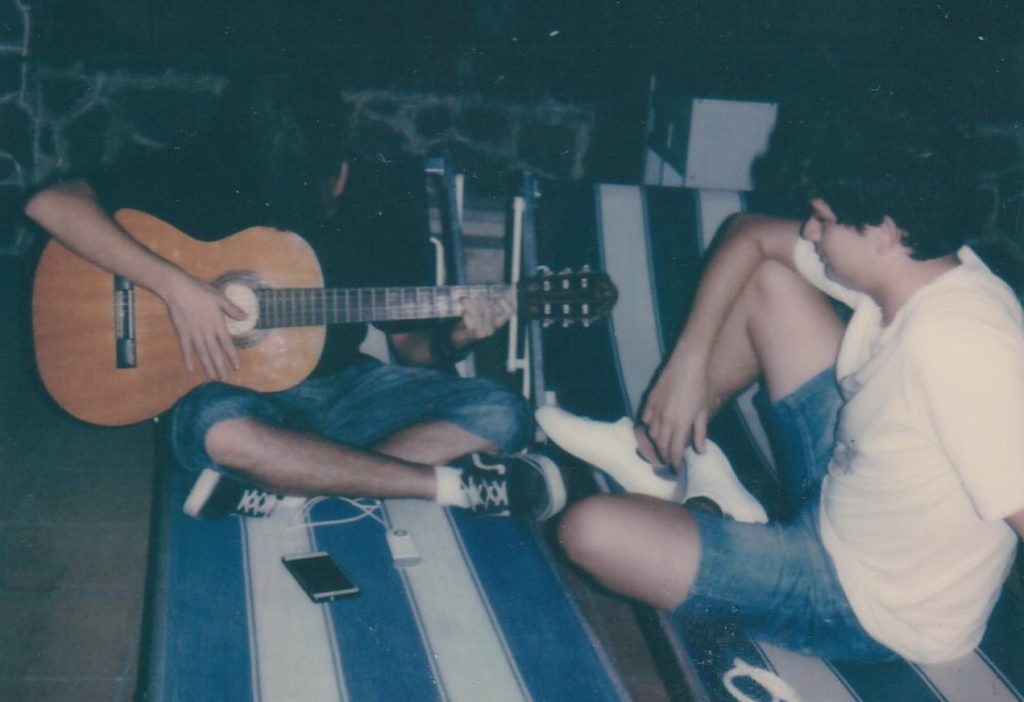 Friends learning music We don't have to be in a hurry, but we also don't have to waste time or money on this infinite path that is learning. Let's surround ourselves with good, like-minded friends, let's exchange experiences and knowledge, let's pay for what we need to develop as artists and not for what we are supposed to learn. Music or songs can be a way of life, they can fill an existence to the brim. Like any art, it is absolutely endless, for the simple reason that it began with us, these clumsy humans, and it will end with us too. Learn without fear, learn as you want, learn what you need and make your voice heard in the noise of the world, bring some meaning to what we live every day, so often absurd. #mailpoet_form_3 .mailpoet_form { } #mailpoet_form_3 .mailpoet_column_with_background { padding: 10px; } #mailpoet_form_3 .mailpoet_form_column:not(:first-child) { margin-left: 20px; } #mailpoet_form_3 .mailpoet_paragraph { line-height: 20px; margin-bottom: 20px; } #mailpoet_form_3 .mailpoet_segment_label, #mailpoet_form_3 .mailpoet_text_label, #mailpoet_form_3 .mailpoet_textarea_label, #mailpoet_form_3 .mailpoet_select_label, #mailpoet_form_3 .mailpoet_radio_label, #mailpoet_form_3 .mailpoet_checkbox_label, 3 .mailpoet_list_label, #mailpoet_form_3 .mailpoet_date_label { display: block; font-weight: normal; } #mailpoet_form_3 .mailpoet_text, #mailpoet_form_3 .mailpoet_textarea, #mailpoet_form_3 .mailpoet_select, #mailpoet_form_3 .mailpoet_date_month, #mailpoet_form_3 .mailpoet_date_day, #mailpoet_form_3 .mailpoet_date_year, #mailpoet_form_3 .mailpoet_date { display :block; } #mailpoet_form_3 .mailpoet_text, #mailpoet_form_3 .mailpoet_textarea { width: 200px; } #mailpoet_form_3 .mailpoet_checkbox { } #mailpoet_form_3 .mailpoet_submit { } #mailpoet_form_3 .mailpoet_divider { } #mailpoet_form_3 .mailpoet_message { } #mailpoet_form_3 .mailpoet_form_loading { width: 30px; text-align: center; line-height: normal; } #mailpoet_form_3 .mailpoet_form_loading > span { width: 5px; height: 5px; background-color: #5b5b5b; }#mailpoet_form_3{border: 1px solid #fcb900;border-radius: 40px;text-align: center;}#mailpoet_form_3 form.mailpoet_form {padding: 20px;}#mailpoet_form_3{width: 70%;}#mailpoet_form_3 .mailpoet_message {margin : 0; padding: 0 20px;}#mailpoet_form_3 .mailpoet_paragraph.last {margin-bottom: 0} @media (max-width: 500px) {#mailpoet_form_3 {background-image: none;}} @media (min-width: 500px) { #mailpoet_form_3 .last .mailpoet_paragraph:last-child {margin-bottom: 0}} @media (max-width: 500px) {#mailpoet_form_3 .mailpoet_form_column:last-child .mailpoet_paragraph:last-child {margin-bottom: 0}} Please leave this field emptyDo you write songs or would you like to?
Friends learning music We don't have to be in a hurry, but we also don't have to waste time or money on this infinite path that is learning. Let's surround ourselves with good, like-minded friends, let's exchange experiences and knowledge, let's pay for what we need to develop as artists and not for what we are supposed to learn. Music or songs can be a way of life, they can fill an existence to the brim. Like any art, it is absolutely endless, for the simple reason that it began with us, these clumsy humans, and it will end with us too. Learn without fear, learn as you want, learn what you need and make your voice heard in the noise of the world, bring some meaning to what we live every day, so often absurd. #mailpoet_form_3 .mailpoet_form { } #mailpoet_form_3 .mailpoet_column_with_background { padding: 10px; } #mailpoet_form_3 .mailpoet_form_column:not(:first-child) { margin-left: 20px; } #mailpoet_form_3 .mailpoet_paragraph { line-height: 20px; margin-bottom: 20px; } #mailpoet_form_3 .mailpoet_segment_label, #mailpoet_form_3 .mailpoet_text_label, #mailpoet_form_3 .mailpoet_textarea_label, #mailpoet_form_3 .mailpoet_select_label, #mailpoet_form_3 .mailpoet_radio_label, #mailpoet_form_3 .mailpoet_checkbox_label, 3 .mailpoet_list_label, #mailpoet_form_3 .mailpoet_date_label { display: block; font-weight: normal; } #mailpoet_form_3 .mailpoet_text, #mailpoet_form_3 .mailpoet_textarea, #mailpoet_form_3 .mailpoet_select, #mailpoet_form_3 .mailpoet_date_month, #mailpoet_form_3 .mailpoet_date_day, #mailpoet_form_3 .mailpoet_date_year, #mailpoet_form_3 .mailpoet_date { display :block; } #mailpoet_form_3 .mailpoet_text, #mailpoet_form_3 .mailpoet_textarea { width: 200px; } #mailpoet_form_3 .mailpoet_checkbox { } #mailpoet_form_3 .mailpoet_submit { } #mailpoet_form_3 .mailpoet_divider { } #mailpoet_form_3 .mailpoet_message { } #mailpoet_form_3 .mailpoet_form_loading { width: 30px; text-align: center; line-height: normal; } #mailpoet_form_3 .mailpoet_form_loading > span { width: 5px; height: 5px; background-color: #5b5b5b; }#mailpoet_form_3{border: 1px solid #fcb900;border-radius: 40px;text-align: center;}#mailpoet_form_3 form.mailpoet_form {padding: 20px;}#mailpoet_form_3{width: 70%;}#mailpoet_form_3 .mailpoet_message {margin : 0; padding: 0 20px;}#mailpoet_form_3 .mailpoet_paragraph.last {margin-bottom: 0} @media (max-width: 500px) {#mailpoet_form_3 {background-image: none;}} @media (min-width: 500px) { #mailpoet_form_3 .last .mailpoet_paragraph:last-child {margin-bottom: 0}} @media (max-width: 500px) {#mailpoet_form_3 .mailpoet_form_column:last-child .mailpoet_paragraph:last-child {margin-bottom: 0}} Please leave this field emptyDo you write songs or would you like to?
I have read and accept the Privacy Policy With the Guide «The journey of a song» as a gift Check your inbox or spam folder to confirm your subscription.

